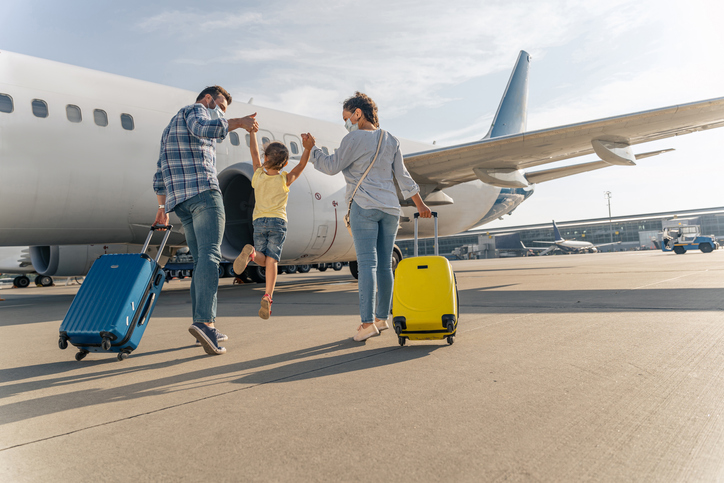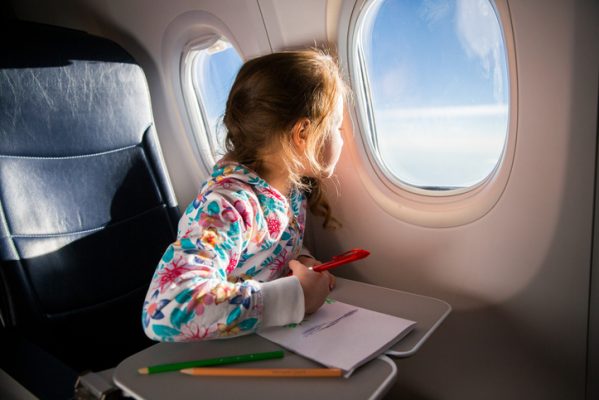Before the Trip
How old should our child be when we visit her homeland?
Generally speaking, your child should be between the ages of 8 and 11. During these years most children are eager to visit their homeland as tourists and to connect personally with the place where they were born.
How do we prepare our child for the trip?
Ask your child what he wants to do while in country and listen carefully to his answers. Does your child just want to be a tourist, or does she also want to visit the orphanage where she stayed? Does she want to meet her foster parents? Keep in mind that adopted children often have fantasies about what will happen when they visit their homeland. Some think they will see their birthmother on the street and recognize her. Others think that when you visit the orphanage you will adopt another baby. Listen to your child’s fantasies and be prepared to talk about what is and is not likely to happen. One very good strategy is to ask your child what would be the best thing and worst thing that could happen on the trip. Then play out these different scenarios with your child so she is prepared.
Discuss with your child the aspects of his homeland culture that are different — for example, how people eat or how close they stand when talking to you. You should also, where relevant, prepare your child for seeing extreme poverty, including homeless children. Your child will be aware during this visit that not all children from his homeland live as well as he does, and he may feel very sad or guilty about that. Discuss with your child ways he can make a difference. For example, he might pack a suitcase of toys for the children at the orphanage you will visit.
Finally, it is important to start having these discussion with your child a month or so before the trip. This way both you and your child have time to prepare for what might happen when you go.
Is there anything my child can bring on the trip that will help her remember and explain that she came from this place but is also American?
Yes! One of the most important things your child can do before your trip is to create a “reader’s digest” lifebook: one photo per page for each year of your child’s life with one to two sentence captions for each photo. Once the book is the way the child wants it, try to have the captions translated. Make several bound copies so your child can give a copy of the book to people she meets during the trip, such as a new friend, a birth family member or an orphanage caretaker. By making this book, your child will have in her hands a narrative of her life, and the book itself will help your child decide how she wants to explain herself to curious people.
Scheduling the Trip

What is the advantage of traveling with a “homeland tour” group?
- Homeland tour groups are experts at scheduling homeland visits in a kid-friendly way.
- There is a translator on staff, and a social worker who can help the kids throughout the trip.
- Your child will have other children to talk with about their experiences.
- You will have other parents to talk to!
- Many tour groups, in advance of the trip, will help you with searches for orphanages and foster families, and will schedule the visits when possible.
- One major disadvantage is that these tours are generally more expensive than a trip you would plan yourself.
If we go on our own, how should we schedule the trip?
Don’t overschedule! Make sure you and your child have plenty of down time, and kid-friendly breaks.
Keep in mind that jet lag is very real! Make sure that your first few days are low-key, with just a little sightseeing and lots of relaxing by the pool, reading books, and watching DVDs.
Be flexible in your plans. If your child seems over-strung or anxious, be ready to cancel a particular sightseeing trip so you can just hang out at the hotel. Also be aware that once in country, your child may feel very differently about visiting the orphanage. As always, listen to your child and respect her wishes. Also do some reality-testing. Your child’s sudden reluctance to see the orphanage may be something you are able to discuss in terms of what she fears and what she hopes will happen.
Do you have any recommendations for how we should record the trip?
Take lots of photographs! Give your child her own camera. This will allow her to take memories of what is important to her, and being able to look through the lens of a camera will also allow her to put boundaries around what can occasionally be an overwhelming situation. Having a camera will allow her to stay silent if she would prefer not to talk to strangers.
In addition, try to keep a daily journal of what you saw and did, and how your child reacted. Let your child be in the moment, and observe your child so that you can have a coherent narrative that will help remind your child of what you did.
Don’t try to make sense of anything while you’re on your trip. Just keep taking photographs, writing in your journal, and having your child take photographs.
After the Trip
What should our child do with all the photographs and memories when we come back?
- Ask your child their thoughts on the best part and the worst part of the trip and why. This can be a helpful way of getting your child to reflect on the trip and what it meant to him.
- Discuss with your child how she would like to record the trip. Does she like to write? Paint? Let her take the lead on the way she would like to work with the photographs she took (and the ones you took).
- Use your journal when your child has difficulty remembering what happened. However, respect your child’s desire to work on his memory book on his own.
- Talk with your child about what he would like to share with others now that you are back home. What does he want to share and what does he want to keep private? Are there people he would particularly like to talk with?
- Practice having your child answer questions that curious friends and relatives might ask. Help your child find different ways of answering these questions, depending on what she wants to keep private and what she wants to tell.
- Have your child talk to a trusted adult friend or relative about the trip. This will allow your child to practice telling a coherent narrative, and will also allow your child to talk about some things that she may not want to tell you.
- Make your own memory book about what it was like as a parent to visit your child’s homeland. You might talk about your fears of seeing your child’s birth mother or foster parents. Whether or not you share this with your child, it will be something for you to make sense of the trip you took.














